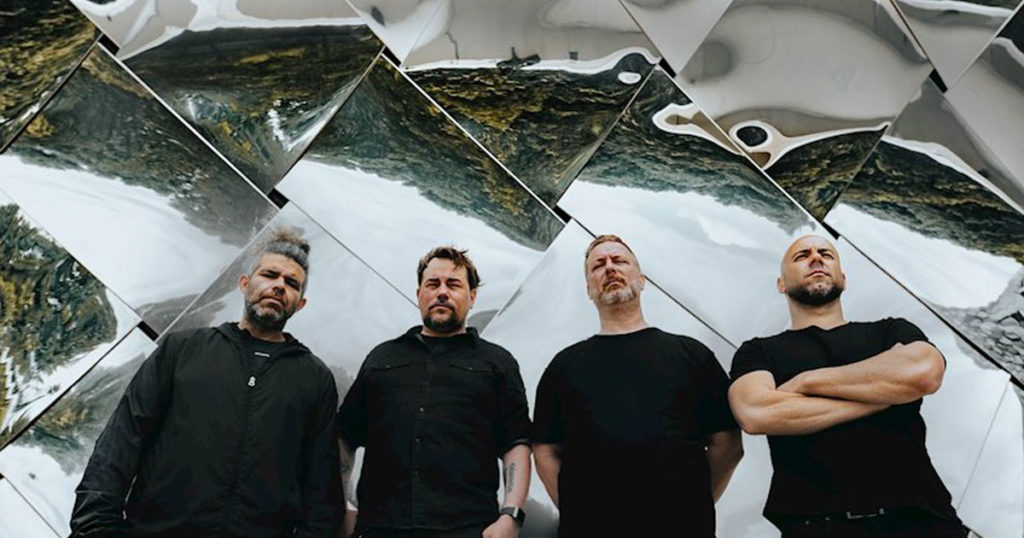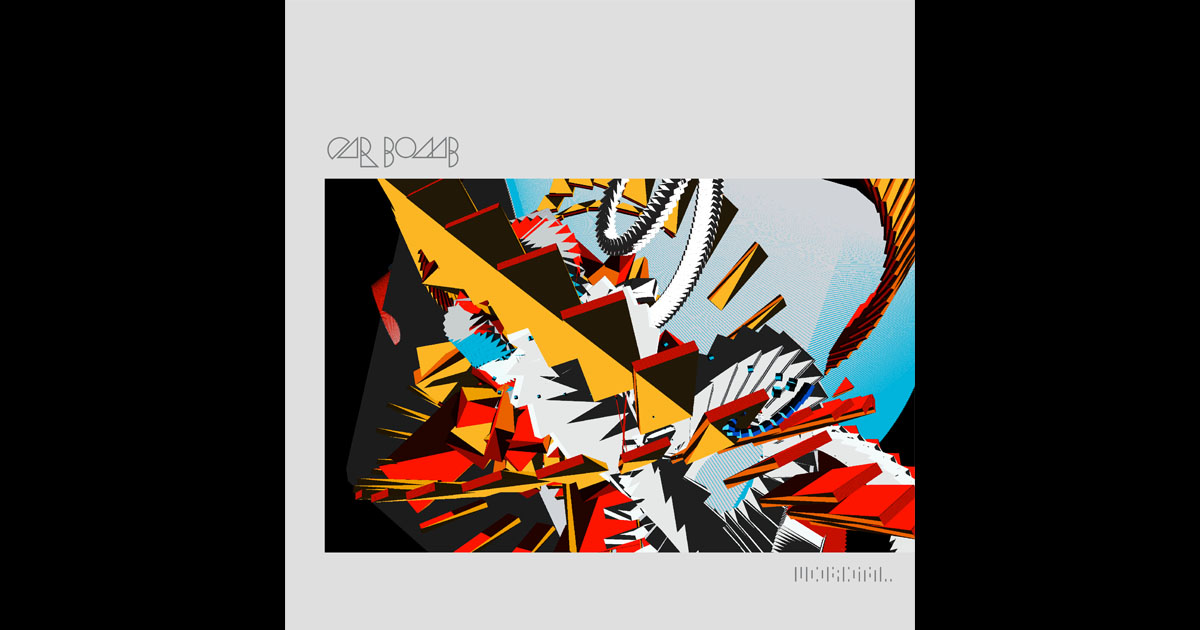On their latest album Mordial, the long-running Brooklyn-area extreme mathcore band Car Bomb amp up their music’s already punishing sound. While the band kicks off Mordial with straightforward sonic devastation, maintaining a brutal, technically dazzling grind, they also liberally infuse sweeps of heavy atmosphere to deliver captivating, dynamic builds and meltdowns. From the gently unfolding intro track to the scattered minutes of quiet, contemplative turns through the rest of the album, listening to Car Bomb’s approachable fury is an invigorating, personal experience.
The physically intense journey culminates in explosive musical end results ⎯⎯the final track on Mordial blasts out like a battle-cry in some desperate regiment’s last stand. The unsettling ride there shows the band turning some of the sonic mayhem and associated real-world grime dealt with by other extreme metal bands into a high-speed sonic roller coaster. For example, on the track “Scattered Sprites,” the instrumentation alternates between erratic grind attacks and uneasy atmosphere, sparking a uniquely (and thrillingly) unsettling experience. Mordial has moments of straightforward riffing, like in more conventional metal, but those get overwhelmed by the band’s tidal waves of disjointed chaos. The result feels wonderfully exhilarating.
Car Bomb’s fourth full-length album Mordial came out at the end of September. In the U.S., the band themselves handled release duties, while over in the European Union, Holy Roar Records released the album, adding Car Bomb to their repository of sought-after underground heavy music.
Ahead, some insight from guitarist Greg Kubacki into the creation of this exploration of the extremes of relentlessly energetic music.

Hard Noise: What’s the listening experience you’re hoping goes along with Mordial?
Greg Kubacki: When I wrote the record, one of the biggest things that I was really cognizant of was trying to make not necessarily a literal story, but some type of sound experience that was a whole thing from start to finish, so it would definitely have twists and turns and stuff like that.
What helped spark your drive in this direction?
I think it was just trying to pay homage to bands that we really like and trying to follow in their footsteps. A great example of that is Superunknown from Soundgarden⎯⎯that album start to finish is amazing, like every song is different. It sounds so cheesy, but it does take you on a journey. It starts heavy, then it gets poppy, then it gets dark, then it gets super slow, then it gets catchy, then it gets weird, then “Black Hole Sun” kicks in, and that’s not even the best half of the record. The best half of the record is the second half. We were just trying to do stuff like that.
There’s such a single culture going on now with music and with streaming, and that’s great. I’m really happy with what streaming culture is turning into now, how it’s starting to pay artists and you get more exposed to people and it’s really cool, but still⎯⎯I’m just a fan of records. I don’t want to hear a song. I want to hear a record. I want to sit there for an hour or ninety minutes in the car and experience the whole thing start to finish. So I think it was just trying to emulate that and trying to make our best work, like a Superunknown or an Aenima or something like that.
What’s your take on your band’s relationship to “genre” scenes like mathcore and other kinds of crossover fields?
Consciously we really don’t go for it like, “oh yeah here’s the djent-y part” or whatever, but we definitely see⎯⎯I think those scenes are growing, and we’re getting the spillover from it, and we’re more than happy to seep into whatever scene will have us.
What’s a main mantra behind the band’s work and where you’re trying to go from here? What’s something that’s keeping you grounded, going into the future?
We always have an expression in the band: tune or die. But like, I guess it’s more about trying to be the best we can, because when someone’s out of tune, everybody hears ‘em and it’s like “oh this sucks,” or you hear another band that’s out of tune and it’s like⎯⎯ oh dude. [laughs]
More seriously, we’ve been doing it for so long, we don’t even think about it anymore. We’re always constantly writing, and we always want to meet new people and see new bands and try to play as many shows as we can while balancing our jobs, and just try to get better. I guess the mantra for me with the record is just refinement, really trying to hone our sound and make it more, not necessarily accessible, but more digestible. We wanted to ask: if you couldn’t follow time signatures, what would you feel? What’s your impression of it?


